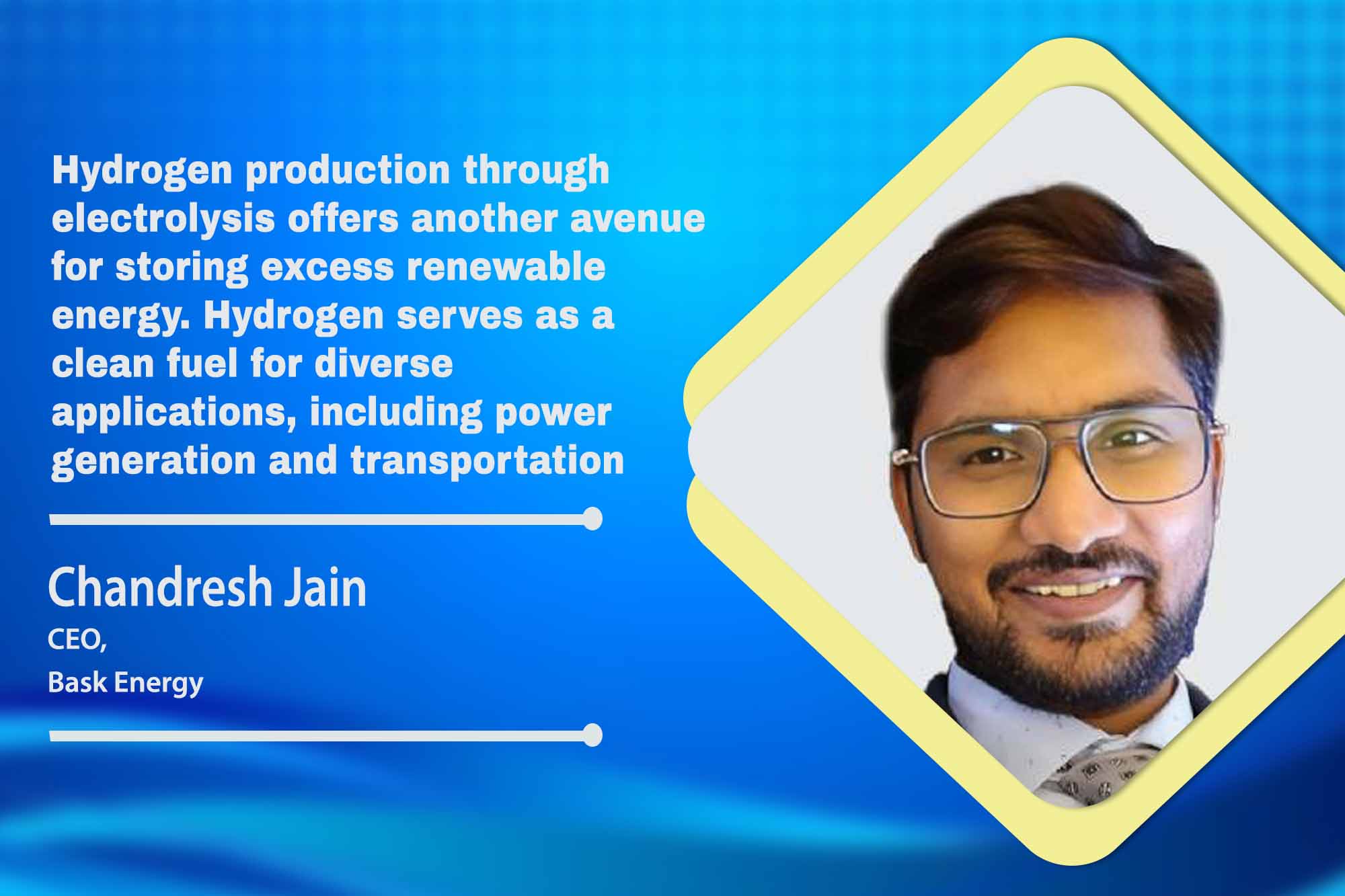Grid integration advancements ease renewable energy incorporation
By EPR Magazine Editorial March 27, 2024 12:07 pm IST
By EPR Magazine Editorial March 27, 2024 12:07 pm IST

Hydrogen production through electrolysis offers another avenue for storing excess renewable energy. Hydrogen serves as a clean fuel for diverse applications, including power generation and transportation.
Recent technological advancements have significantly impacted the feasibility and scalability of integrating renewable energy into the electrical power segment. These advancements include improvements in energy storage technologies, such as advanced batteries and pumped hydro storage, which address the intermittency issues of renewable sources like solar and wind. Chandresh Jain speaks with EPR Magazine to share industry insight.
How do emerging strategies tackle renewable energy intermittency, ensuring reliability for a sustainable future?
Various strategies are being developed to mitigate the intermittency challenges of renewable energy sources. Energy storage technologies, such as lithium-ion and flow batteries, are pivotal in storing surplus renewable energy for later use during periods of low generation, ensuring a steady power supply. Hydrogen production through electrolysis offers another avenue for storing excess renewable energy, with hydrogen serving as a clean fuel for diverse applications, including power generation and transportation.
Demand response programmes incentivise consumers to adjust their electricity consumption in line with supply fluctuations, effectively balancing grid demand. Moreover, advancements in grid integration, including smart grids and microgrids, facilitate the seamless incorporation of renewable resources by enabling dynamic management of energy flow and distribution. These solutions collectively enhance the reliability and stability of renewable energy systems, paving the way for a sustainable and resilient energy future.
What are some effective policies and incentives that play a crucial role in driving investment in RE adoption?
Policies and incentives are critical in driving investment in renewable energy adoption. One effective policy is the establishment of Renewable Energy Targets, where governments set specific goals to increase the share of renewable energy in the overall energy mix. These targets provide long-term certainty for investors and encourage investment in renewable energy projects. Feed-in Tariffs (FITs) are another essential incentive. FITs guarantee a fixed price for renewable energy generation, ensuring a stable revenue stream for investors and incentivising investment in renewable energy projects.
Renewable Energy Certificates (RECs) offer a market-based mechanism to incentivise renewable energy production. These certificates certify the renewable attributes of energy generated from renewable sources, creating a market for renewable energy attributes and encouraging investment in renewable energy projects. Policies such as Renewable Energy Targets, incentives like Feed-in Tariffs, and mechanisms such as RECs are crucial in driving investment in renewable energy adoption and facilitating the transition to a more sustainable energy future.How do microgrids and smart grid tech tackle challenges integrating renewables while ensuring reliability and security?
Microgrids and smart grid technologies are pivotal in integrating distributed renewable resources into the power grid. They bolster grid flexibility by enabling localised generation, distribution, and electricity consumption, reducing reliance on centralised plants and enhancing resilience. Moreover, intelligent energy management via smart grids allows real-time monitoring and control, optimising renewable resource utilisation for improved efficiency. However, challenges like interoperability hinder seamless communication among diverse grid components, while cybersecurity threats loom due to digital reliance. Overcoming these demands robust standards, protocols, and cybersecurity measures to ensure successful integration while upholding reliability and security.
How can renewable energy infrastructure minimise environmental impact and promote sustainability effectively?
Minimising the environmental footprint of renewable energy infrastructure is vital for long-term sustainability. Sustainable siting practices involve careful consideration of sensitive habitats, ecosystems, and landscapes. Lifecycle assessment evaluates environmental impacts from manufacturing to decommissioning, identifying areas for improvement. Resource efficiency reduces waste generation and optimises resource use through advanced manufacturing and smart grid integration. Ongoing R&D enhances efficiency, durability, and environmental performance, embracing circular economy principles for material reuse. Policy support is crucial, with governments incentivising sustainability through mandates, carbon pricing, and tax incentives. Aligning incentives with environmental goals accelerates the transition to a sustainable energy future.
Spokesperson: Chandresh Jain, CEO- Bask Energy
We use cookies to personalize your experience. By continuing to visit this website you agree to our Terms & Conditions, Privacy Policy and Cookie Policy.